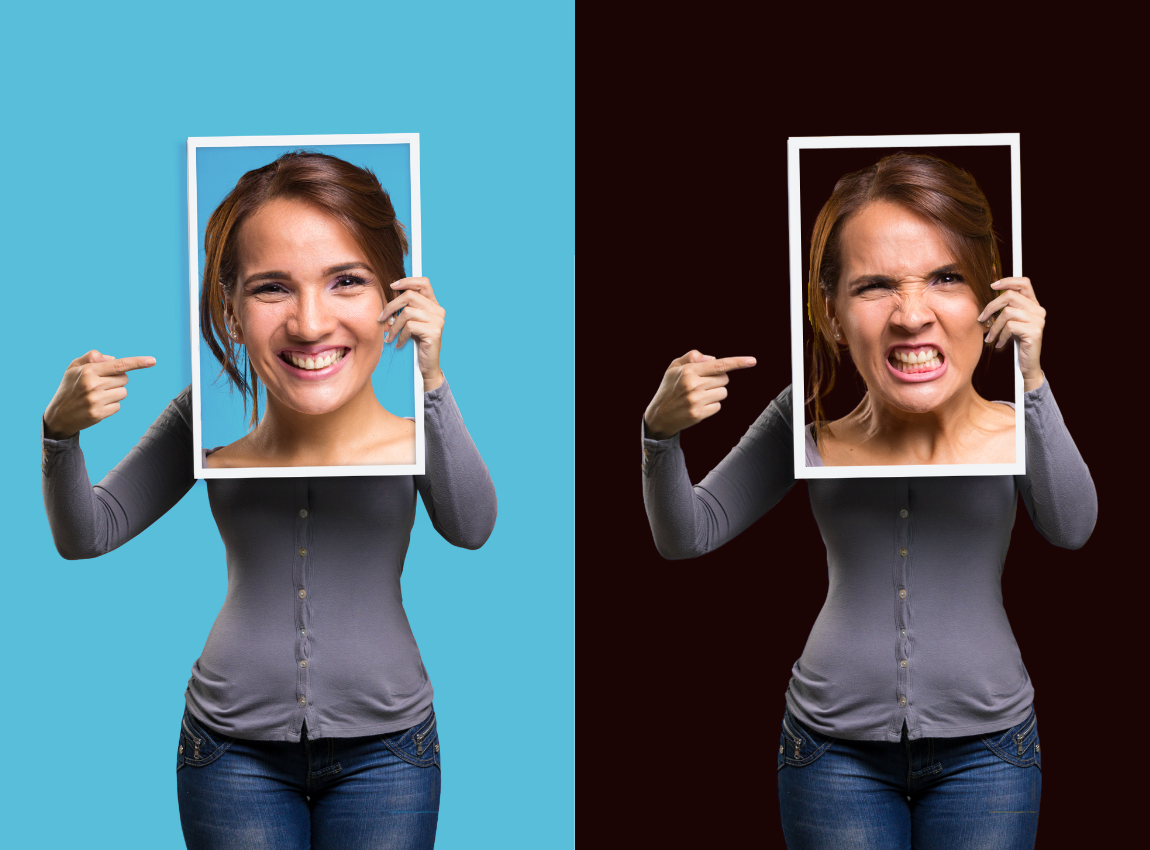The Benefits of Dual Diagnosis Treatment Centers
Aliya
on
July 19, 2023
Dual diagnosis treatment can provide a wide range of benefits for individuals struggling with co-occurring mental health and substance abuse disorders. These specialized addiction and mental health treatment centers offer integrated care that addresses both conditions simultaneously. By addressing both disorders, dual diagnosis treatment centers provide improved treatment outcomes and higher rates of success in long-term recovery.
To fully understand the benefits of dual diagnosis treatment, it’s important to understand the link between mental health and addiction, and how these programs can effectively address both issues.
The Link Between Mental Health and Addiction
The link between mental health issues and addiction is well-established. According to the Substance Abuse and Mental Health Services Administration, one in four people with a severe mental illness also suffer from addiction. Yet the reasons for this link are somewhat complex. On the one hand, people with mental health issues often go without treatment. Sometimes this can be due to a lack of access to quality care or an unwillingness to accept help.
To seek relief for their symptoms, many people with dual-diagnosis disorders start self-medicating. Self-medicating means abusing drugs or alcohol to manage symptoms of a mental health disorder. While providing temporary relief, this often leads to the symptoms becoming worse in the long run.
On the other hand, drug or alcohol abuse can also raise one’s risk for developing a mental illness, especially if they are genetically predisposed in such a way. This is especially so if the substance abuse begins when the person is young. For example, studies have linked early-life cannabis use to a higher likelihood of developing schizophrenia.
Doctors refer to this coincidence of mental illness and substance abuse as a dual diagnosis. People in this category require special treatment at dual diagnosis treatment centers, where both the addiction and underlying mental health issues driving it can be treated.
What Mental Health Issues are Associated with Addiction?
There is a large variety of mental health conditions that are associated with addiction. The risk factors for developing these co-occurring disorders can vary depending on a person’s genetic, environmental, and social backgrounds.
Substance abuse commonly co-occurs with mental health disorders including:
-
- Depression — According to a national survey, 16.9% of the 20.3 million people who suffer from depression also reported having a substance use disorder.
- Anxiety Disorders — Nearly 22% of those with anxiety disorders self-medicate with drugs or alcohol.
- Bipolar disorder — According to research, 61% of people with bipolar I develop a substance use disorder (SUD) and 48% of those with bipolar II develop an SUD, with alcohol being the most commonly abused substance.
- Schizophrenia — 47% of people with schizophrenia deal with substance abuse issues throughout their lives.
- Personality Disorder — One study found that anywhere from 34 to 73% of personality disorder cases also involve addiction.
- Post-traumatic Stress Disorder (PTSD) — Over 21% of people with PTSD struggle with substance abuse issues.
If you or a loved one are dealing with mental illness and addiction, contact Aliya Health to benefit from one of our dual diagnosis treatment centers.
Get confidential help from our addiction and mental health treatment facilities located across the United States. Call to join one of our quality programs today!
Speak With Our Admissions TeamDual Diagnosis Treatment for Co-Occurring Disorders
The main feature of dual diagnosis treatment is that it tackles both conditions together. This is crucial because both mental illness and substance use disorder can influence each other.
For example, a person with mental illness might use drugs or alcohol to cope with their symptoms (known as “self-medication”), and conversely, substance use can exacerbate mental health issues.
Integrated Intervention
This means treating both the mental illness and substance use disorder at the same time. The healthcare team, which can include psychiatrists, social workers, therapists, and other mental health professionals, collaboratively creates a comprehensive treatment plan that addresses both conditions.
Medication
Certain medications may be used to manage withdrawal symptoms, reduce cravings, and treat mental health conditions. Antidepressants, anti-anxiety medications, mood stabilizers, and antipsychotics can all be part of a comprehensive treatment plan.
Therapy
This is often a key component of dual diagnosis treatment. Cognitive Behavioral Therapy (CBT) is frequently used, which helps individuals identify and change negative thought patterns that can lead to substance use and exacerbate mental health conditions. Other types of therapy, such as Dialectical Behavior Therapy (DBT), family therapy, or group therapy, may also be included.
How Dual Diagnosis Treatment Helps
By addressing both disorders simultaneously, Dual Diagnosis treatment provides a holistic approach that can lead to improved outcomes compared to treating each disorder separately. The aim is to not only achieve sobriety but also to manage the symptoms of mental illness, reduce the risk of relapse, improve overall health, and enhance quality of life.
It’s worth noting that the path to recovery from co-occurring disorders can be complex and challenging, and it’s not a one-size-fits-all process. The best treatment approach varies depending on the types and severity of disorders, the individual’s personal circumstances, and their readiness to change. That’s why a tailored, individualized treatment plan is crucial.
Looking for quality treatment for substance abuse and mental health that’s also affordable? Aliya Health Group's treatment facilities accept most major insurance providers. Get a free insurance benefits check now!
Check Your CoverageDual Diagnosis Treatment Programs
Dual diagnosis treatment programs are designed to address both substance abuse and mental health disorders simultaneously. This integrated approach allows for a more comprehensive and effective treatment plan.
In general, two main types of dual diagnosis treatment programs, including:
- Inpatient dual diagnosis treatment centers
- Outpatient dual diagnosis treatment centers
Whether you choose an inpatient or outpatient program, our team at Aliya Health Group can work with you to develop a personalized treatment plan that addresses your specific needs and goals. We understand that each person’s journey to recovery is unique, and we are committed to providing individualized care for every client.
Inpatient Dual Diagnosis Treatment Centers
At inpatient dual diagnosis treatment centers, you can expect a comprehensive and immersive healing experience. Throughout inpatient treatment, medical professionals work with you to address and treat your substance use and mental health disorders at the same time.
Upon admission, you will undergo a thorough assessment process, which helps in determining the presences of any co-occurring disorders and crafting a tailored treatment plan that aligns with your specific needs.
The top dual diagnosis treatment centers offer a multifaceted approach that includes:
- Medical detoxification
- Psychiatric evaluations
- Medication management
- Individual and group therapy sessions
- Drug addiction counseling
- Integrative case management
- Continuing care options
Inpatient treatment options offer a structured and supportive environment for those starting their recovery journey. These dual diagnosis treatment facilities offer 24-hour medical care and supervision to ensure your safety and comfort. During detox and residential dual diagnosis treatment, you will participate in individual and group therapy to promote self-awareness, inner motivation, and personal growth.
Outpatient Dual Diagnosis Treatment Centers
At outpatient dual diagnosis treatment centers, individuals can expect a flexible yet structured program designed to accommodate their daily commitments to work, family, or education while receiving comprehensive care. The approach is holistic and personalized, focusing on treating both mental health problems and substance abuse simultaneously.
Long-term dual diagnosis treatment facilities offer programs including:
- Partial hospitalization program (PHP)
- Intensive outpatient program (IOP)
- Traditional outpatient program (OP)
Throughout outpatient treatment, you will transition through each level of care, gain more freedoms and responsibilities, and continue to work on your personal growth. This can include building healthy coping mechanisms, setting boundaries, improving communication skills, and creating a relapse prevention plan.
Outpatient addiction treatments typically include:
- Ongoing medication management
- Individual and group counseling
- Family therapy
- Addiction and mental health education
- Life-skills training
- Employment assistance
- Support groups
- Aftercare planning
Outpatient dual-diagnosis treatment sessions are scheduled throughout the week during the day or evening hours to ensure accessibility. The frequency and intensity of these sessions can be adjusted based on your progress and needs, allowing for a tailored treatment experience that supports a gradual transition into your new recovery lifestyle.
Partial Hospitalization Program
A partial hospitalization program (PHP) acts as a step down from inpatient care. PHPs provide more structure than conventional outpatient programs, offering a smooth transition as you ease back into your daily routine. During PHP treatment, you can receive care five to seven days a week for a number of hours each day. After completing treatment for the day, you can choose to return home or a sober living environment in the evening.
Partial hospitalization programs also provide dual diagnosis treatment in the form of intensive therapies, skill development, and medication management as necessary. This way, you can receive ongoing support and guidance you need while reintegrating back into society.
Intensive Outpatient Program
During an intensive outpatient program (IOP), you can participate in intensive therapy sessions, meeting three to five days a week, with each session lasting three hours. This level of care is a step down from partial hospitalization, requiring less time commitment.
IOPs offer dual diagnosis treatment in a less structured environment to provide you with the time to tend to employment, academic, or family obligations. In turn, you can continue receiving help while continuing to take on more responsibilities.
Outpatient Program
The final phase of dual diagnosis treatment is a traditional outpatient program (OP). These outpatient treatment programs offer the least amount of structure and restrictions. This allows clients to receive care without needing to schedule activities around treatment. It also tends to be significantly more affordable than higher levels of care.
Co-Occurring Disorder Treatment at Aliya Health Group
If you or a loved one are struggling with addiction and a co-occuring mental health disorder, you don’t have to face it alone. At Aliya Health Group, we seek to be a beacon, resource, and partner for those struggling with addiction. We offer affordable and compassionate care, with dual diagnosis treatment centers across the country.
Our Holistic Dual Diagnosis Treatment Centers
At Aliya Health Group’s nationwide dual diagnosis treatment centers, we believe in a holistic approach to healing. This means addressing not just the symptoms of addiction or mental illness, but also the underlying issues that may contribute to these conditions. Our highly experienced therapists are trained in a variety of evidence-based treatment practices within a full continuum of care. In doing so, our behavioral health programs provide personalized treatment services tailored to each client.
Additionally, our holistic dual diagnosis treatment centers offer a range of amenities to make your stay as comfortable and relaxing as possible. From nutritious meals prepared by our professional chefs to recreational activities such as yoga and art therapy, we strive to create a supportive and healing environment for our clients.
Start Your Dual Diagnosis Recovery Journey Today
If you or a loved one are thinking of seeking dual diagnosis treatment but have questions, call us at 888-973-2078 or through our secure contact form. Our highly qualified staff will be happy to assist you in getting the care you need.
- Treatment of the Depressed Alcoholic Patient – PMC (nih.gov)
- Part 1: The Connection Between Substance Use Disorders and Mental Illness | National Institute on Drug Abuse (NIDA) (nih.gov)
- The prevalence and significance of substance use disorders in bipolar type I and II disorder – PMC
- Young men at highest risk of schizophrenia linked with cannabis use disorder | National Institutes of Health (NIH)
- Comorbidity of Personality Disorder among Substance Use Disorder Patients: A Narrative Review – PMC (nih.gov)
- The Link Between Schizophrenia and Substance Use Disorder: A Unifying Hypothesis – PMC (nih.gov)













